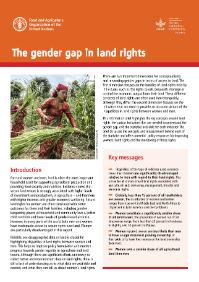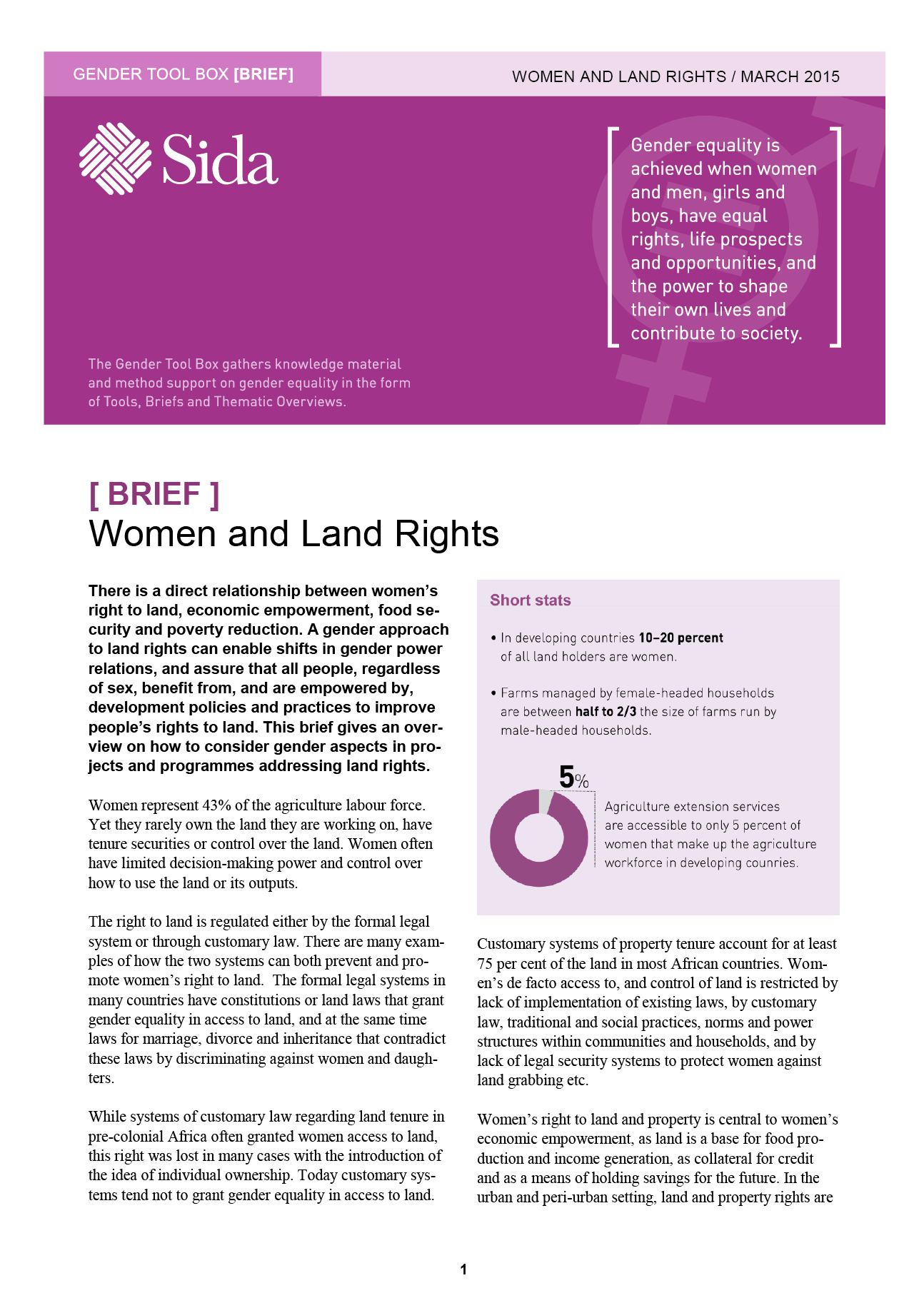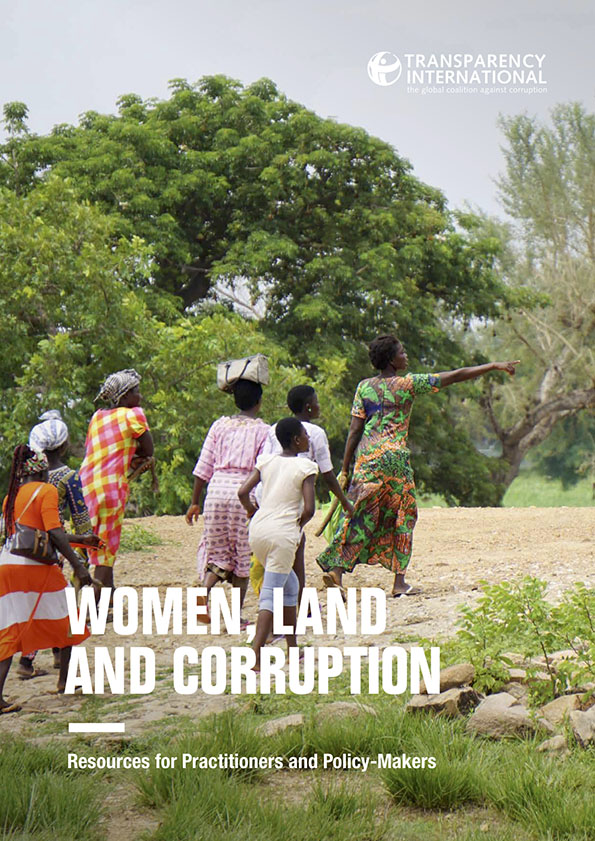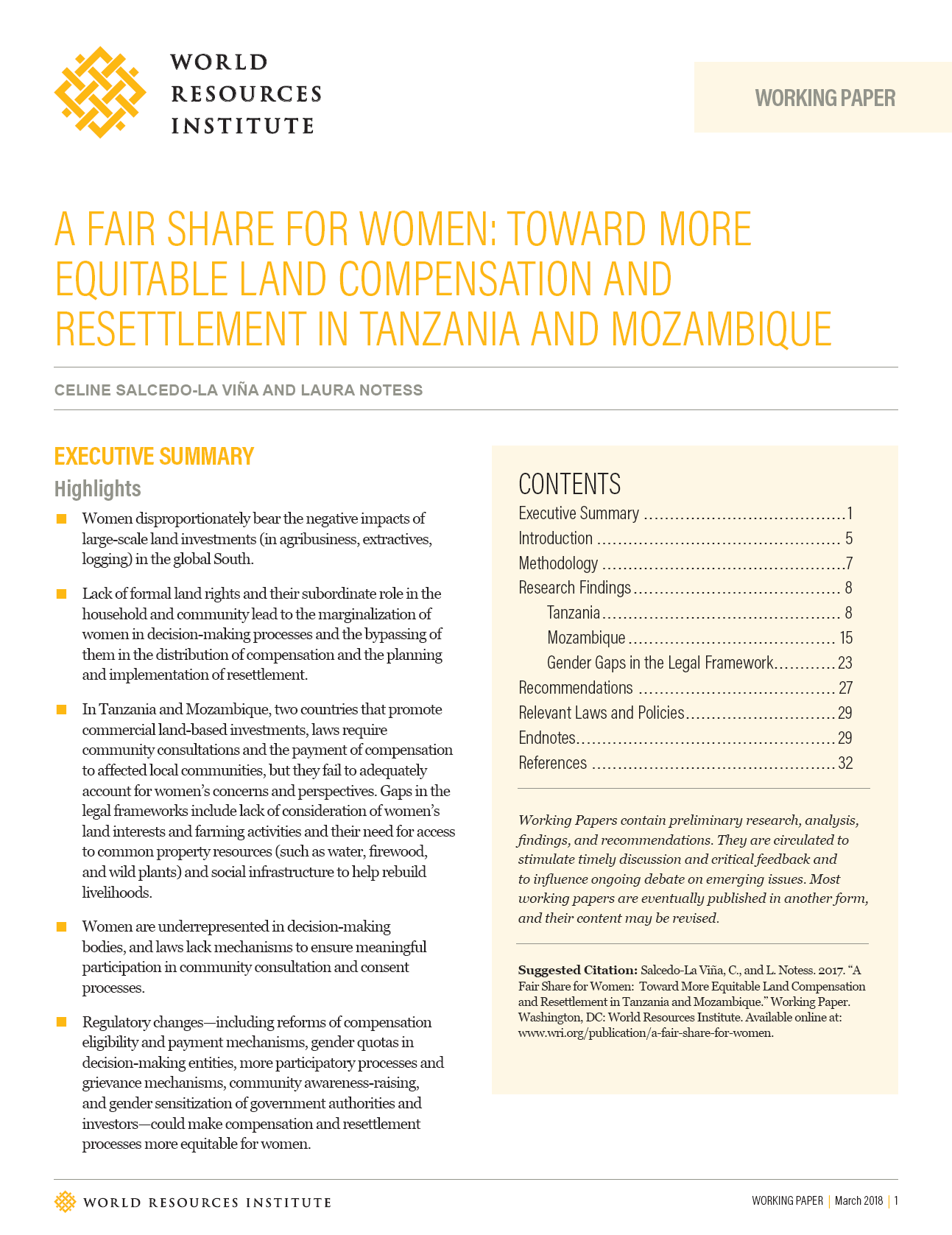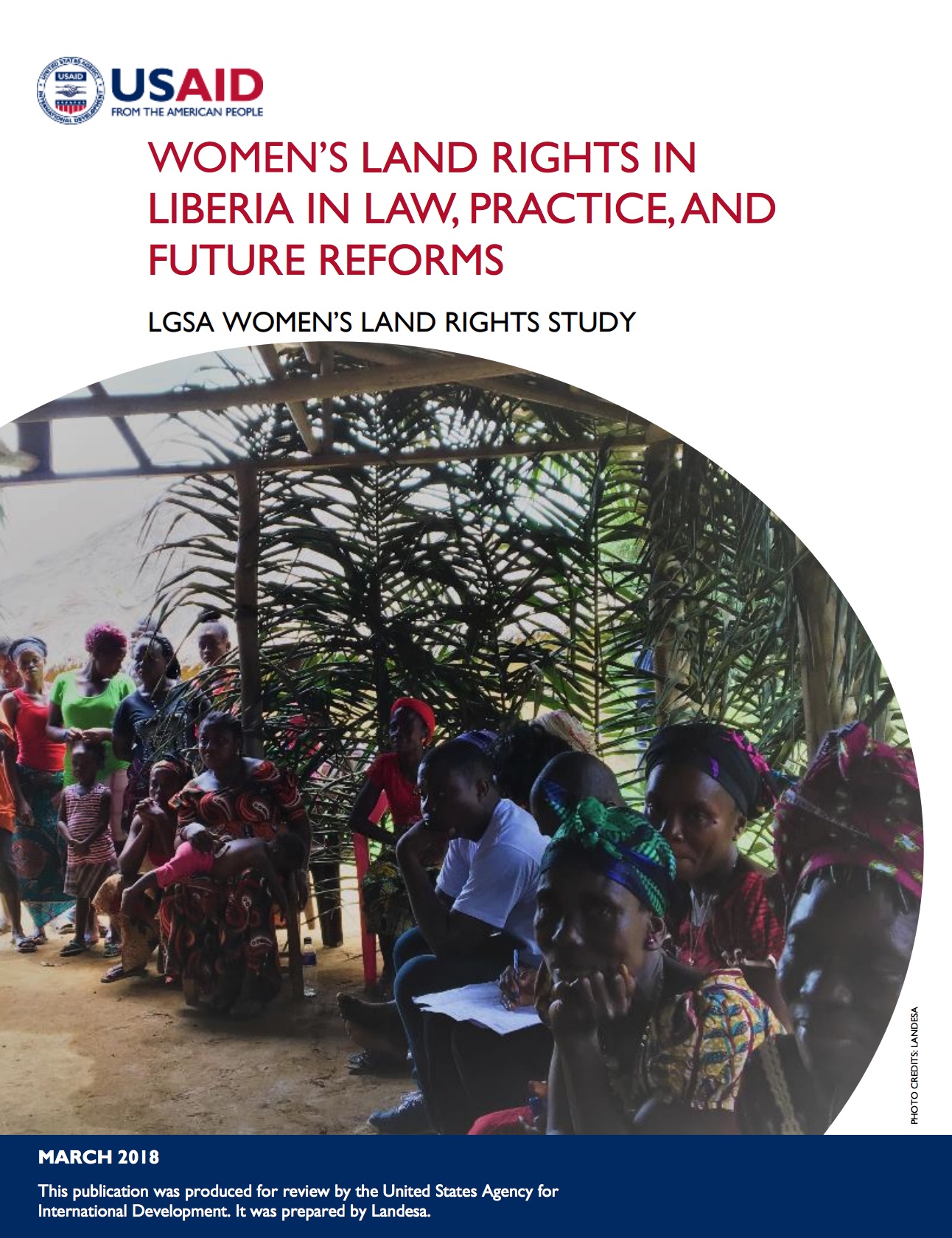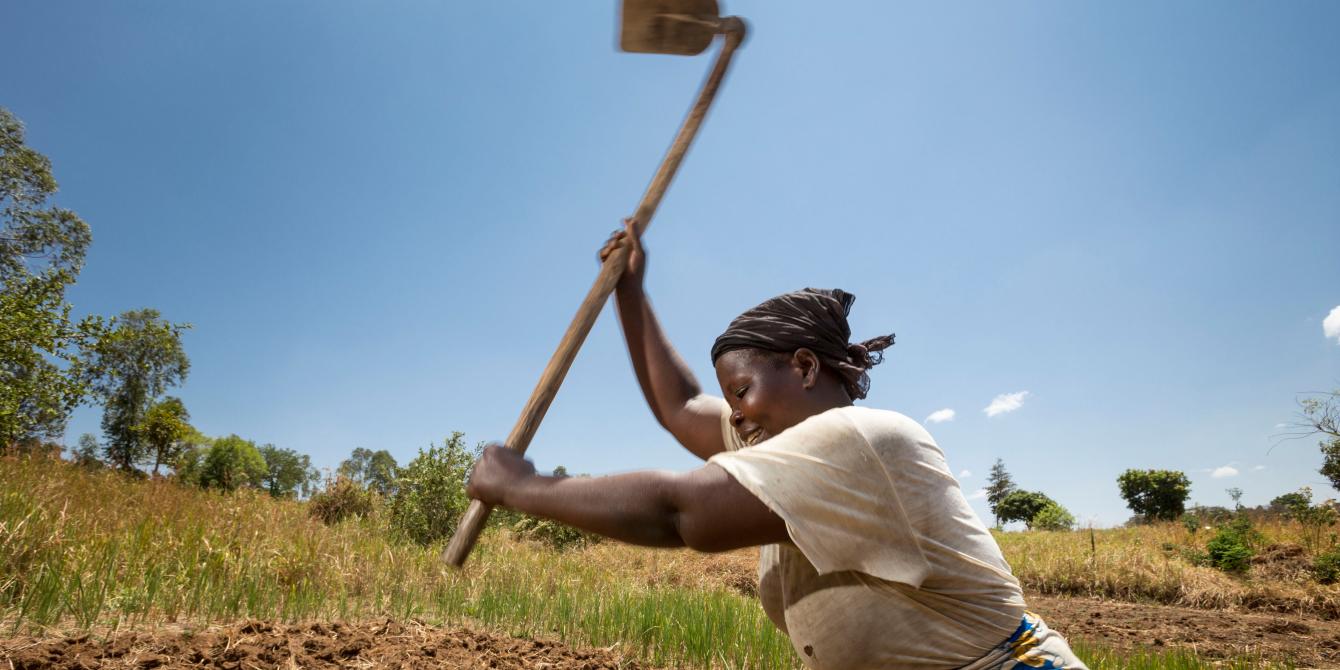Goal 5 of the Sustainable Development Goals (SDGs) “Achieve
gender equality and empower all women and girls” recognizes
the fundamental role of women in achieving poverty
reduction, food security and nutrition.
Target 5.a aims to “Undertake reforms to give women equal
rights to economic resources, as well as access to ownership
and control over land and other forms of property, financial
services, inheritance and natural resources, in accordance with
national laws”.
As the designated custodian for Target 5a, FAO has developed



